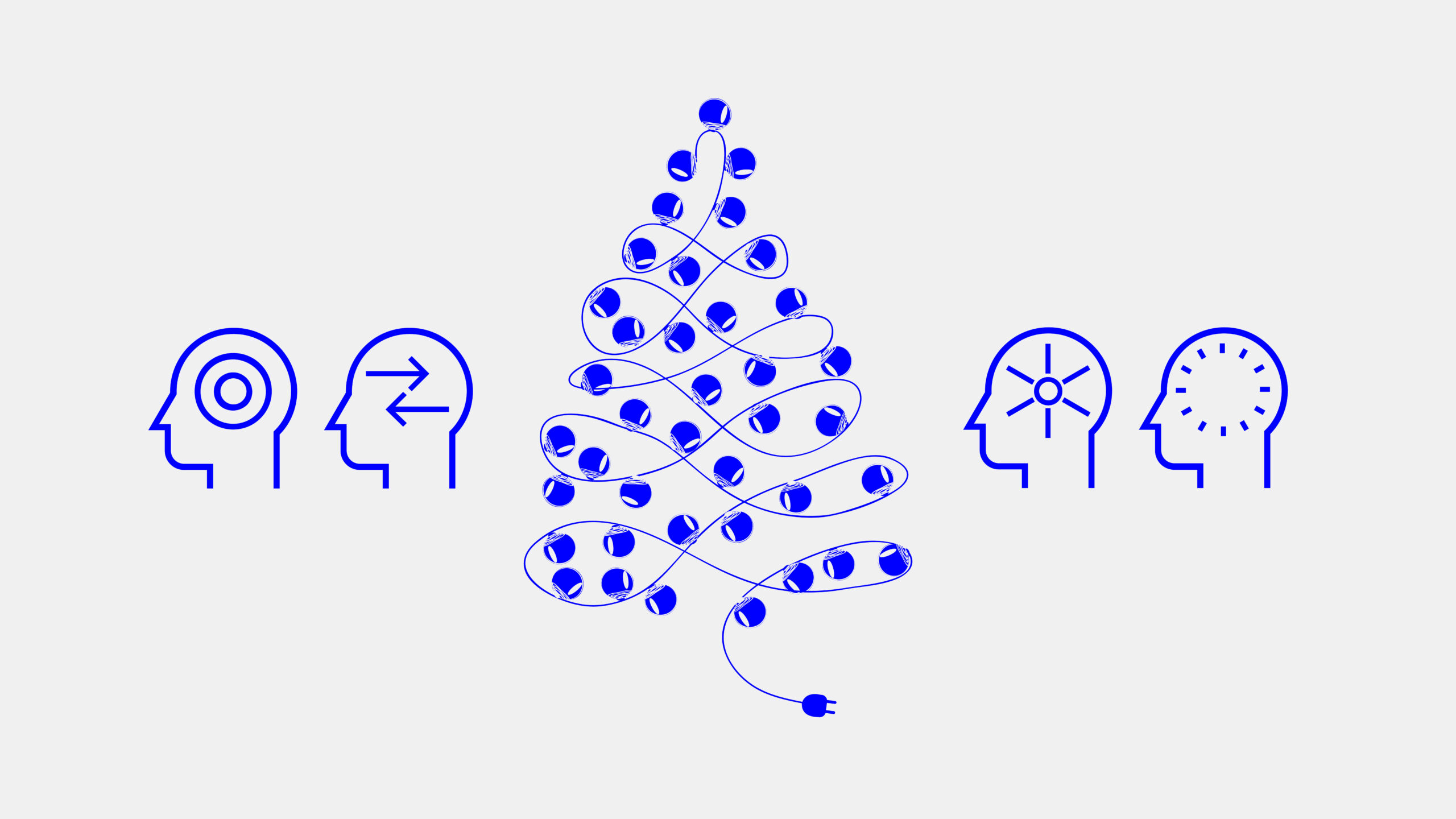12th Dec 2021 by Adjust
Neurodiversity and Christmas

In our latest post Marianne Eloise explains why Christmas can be a tough time for neurodivergent employees.
For most people, the end of the working year is a lot of fun. Christmas festivities, drinks, work winding down, not actually having to do anything while sitting at your desk…it’s the laziest time of the year. However, for neurodivergent people, particularly those who are autistic or have ADHD, this can be a tough time. For those who rely on routine or struggle with sensory overload, a lot of the things associated with Christmas and New Year in the office can be a source of anxiety or meltdown.
Here are 5 difficulties that neurodivergent people might struggle with in the workplace over the holidays and how you as an employer can help make it a little easier. Of course, not everyone is the same, and having some difficulty doesn’t necessarily mean someone doesn’t want to be included! However, it might be a great idea to offer alternatives or adjustments, just as you should at any other time of year.
1.Bright lights and decorations
The office, with its unforgiving lighting, can be a tough place for those who get overwhelmed easily at the best of times. “It takes a lot for me to be able to focus in an environment that’s already incredibly distracting due to bright overhead lights, constant background noise and movement. When I lose focus it takes a lot of effort to get it back,” says Alma, 28, who is autistic and has ADHD. Add in a Christmas tree and some twinkling fairy lights, and that potential for distraction might increase. That doesn’t mean you have to avoid decorating the office – just ask employees if they have any hard “no’s, like flashing lights, and perhaps offer a separate space to work if it gets too much. It’s also worth bearing in mind that lights could be a more serious issue for people with epilepsy.
2.Loud Christmas music
Similarly, as Alma mentions, music can be a major trigger for neurodivergent people. It can cause meltdowns, make it difficult to process, and affect concentration for many different people. As Christmas music is often so repetitive, this can add an extra layer of difficulty! In a 2019 article for Neuroclastic, Terra Vance wrote, “Am I really the only person who can hear the Christmas music playing from three different places at once and find it a nightmarish hell?” As they point out, autistic people often can’t filter out different sounds, which makes it difficult to focus. Again, consider: could you not have Christmas music on throughout the working day in December? Are you able to offer a separate space for neurodivergent people to work? Can you allow people to wear noise-cancelling headphones if they need to?
3.Interrupting the flow of the workday
During the run up to Christmas, there are often festive disruptions to the day: drinks, games, quizzes, secret Santa and other little celebrations. These distractions are often welcomed by employees looking for an excuse to avoid working for a bit! For most neurotypical people, it can be pretty easy to get straight back into whatever they were working on after a disruption, but for neurodivergent people, it’s not so simple: “While it’s a nice idea and I’m sure many people enjoy it, it’s really difficult for me to keep getting interrupted in the middle of my work for this stuff,” says Alma. Try to keep these disruptions to the end of the day or even just letting employees opt out if they need to – it doesn’t make them a grinch!
4.No separation of work and play
Similarly, a lack of clarity around “work time” and “play time” can make things tough, particularly for autistic people. Many need rigid boundaries and rules at work, and blurring the lines between work and play with games, drinking or quizzes in the middle of the day can cause anxiety or meltdowns. “It would help if activities could be limited to a specific meeting part of the office floor people can go to if they want to participate rather than people making the rounds to disturb everybody,” says Alma. Additionally, it’s worth making opting in optional – some people, neurodivergent or not, might just want to keep the workplace professional for themselves personally. That’s OK, and it doesn’t have to impact anyone else’s fun!
5.Christmas parties
For most of the year, employees keep a professional distance from one another. At Christmas parties, however, they’re often expected to let loose and cross the line into friendship, getting drunk and singing to Mariah Carey. For some neurodivergent people, particularly those who choose not to drink, it can be pretty overwhelming to suddenly navigate this new social sphere with people you usually only run into at the kettle. There are ways you can make this environment easier to navigate for everyone – maybe let neurodivergent people bring a trusted friend, or ask for their preferences on food and drink, or avoid forcing people into cringe “getting to know you” games. Simple adjustments and clarity will make it easier for everyone.
Making these small adjustments for your neurodivergent employees can really ensure you are taking steps as an employer to become neuroinclusive. And who knows maybe some of the changes might be appreciated by all! Do we really need to listen to Maria Carey one more time!
If you would like to learn more about Neurodiversity and the workplace contact us today.
